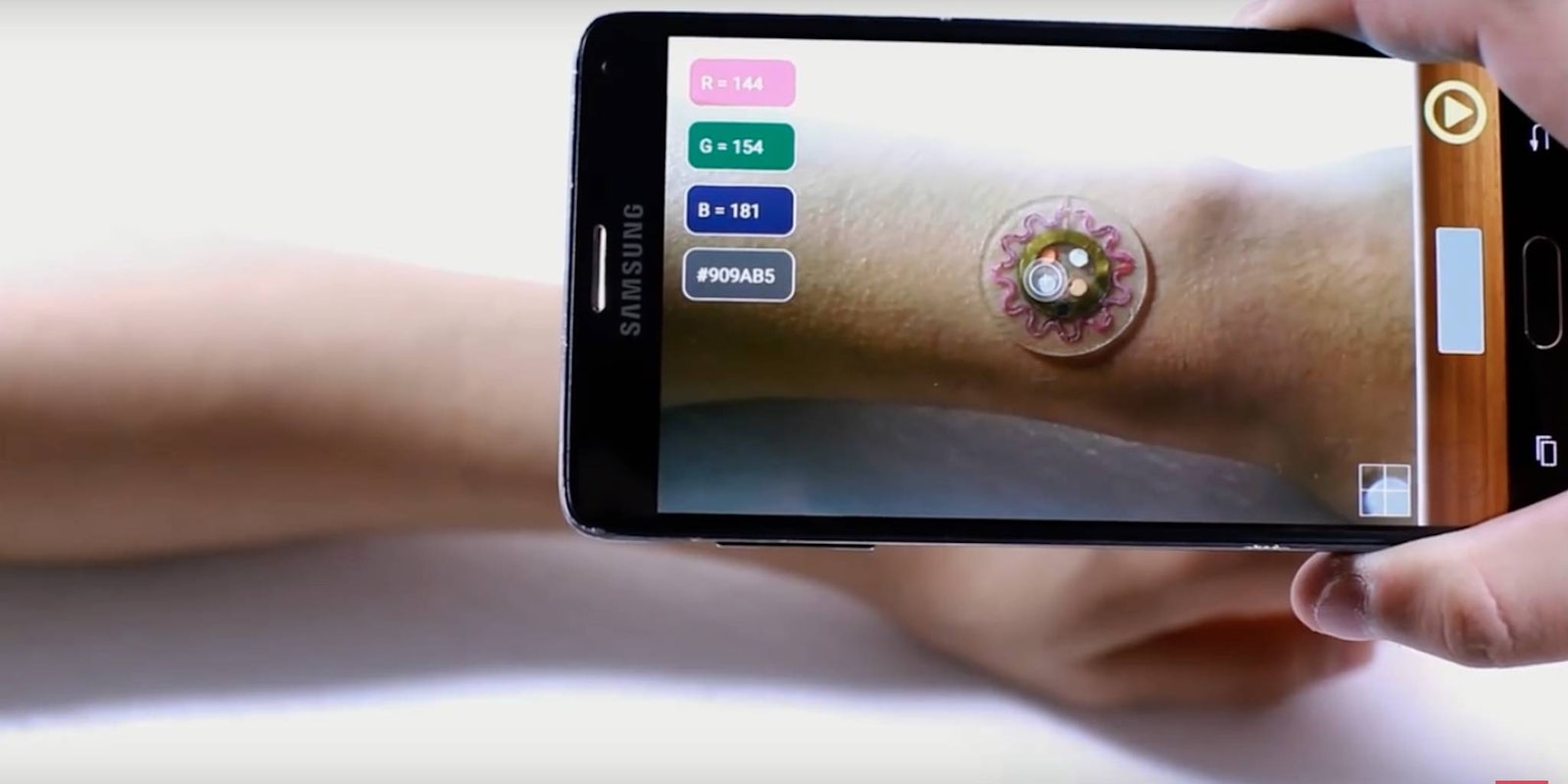Right now, your options for measuring health stats during a workout are extremely limited. You can use a smartwatch or a chest strap to monitor your heart rate, but without expensive lab equipment, that’s about the only vital you can track on a run or bike ride. That’s about to change, though.
A newly developed microfluidic skin patch can collect and analyze your sweat, providing timely information about your glucose, lactate, hydration, and electrolyte levels with the help of an accompanying smartphone app. As sweat is captured in the patch, the various sensors embedded inside change colors to reflect your current physiological condition. Using your phone’s camera, the app can decipher that color coding and tell you what it means. For diabetics and pre-diabetics, this could eventually become a less invasive way of regularly monitoring glucose levels. For athletes, it could provide a clear signal as to when it’s time to refuel or rehydrate and give insights into your current fitness level.
To work, the transparent adhesive patch has to form an airtight seal with your skin. And apparently that seal is strong enough to survive a seriously intense workout session—it was recently successfully tested during the 106 km Tour de Tucson bicycling event. (John Rogers, a physical chemist and materials scientist with the University of Illinois, told IEEE Spectrum that additional physiology and exercise research is being conducted with the help of an unidentified sports beverage company, as well.)
Until now, lab-based sweat capture systems have been far less elegant, requiring costly equipment and absorbent pads for gathering sweat for sampling. In the end, Rogers and his team hopes to make his alternative, this disposable skin patch, commercially available for $1 or $2.
H/T IEEE Spectrum


